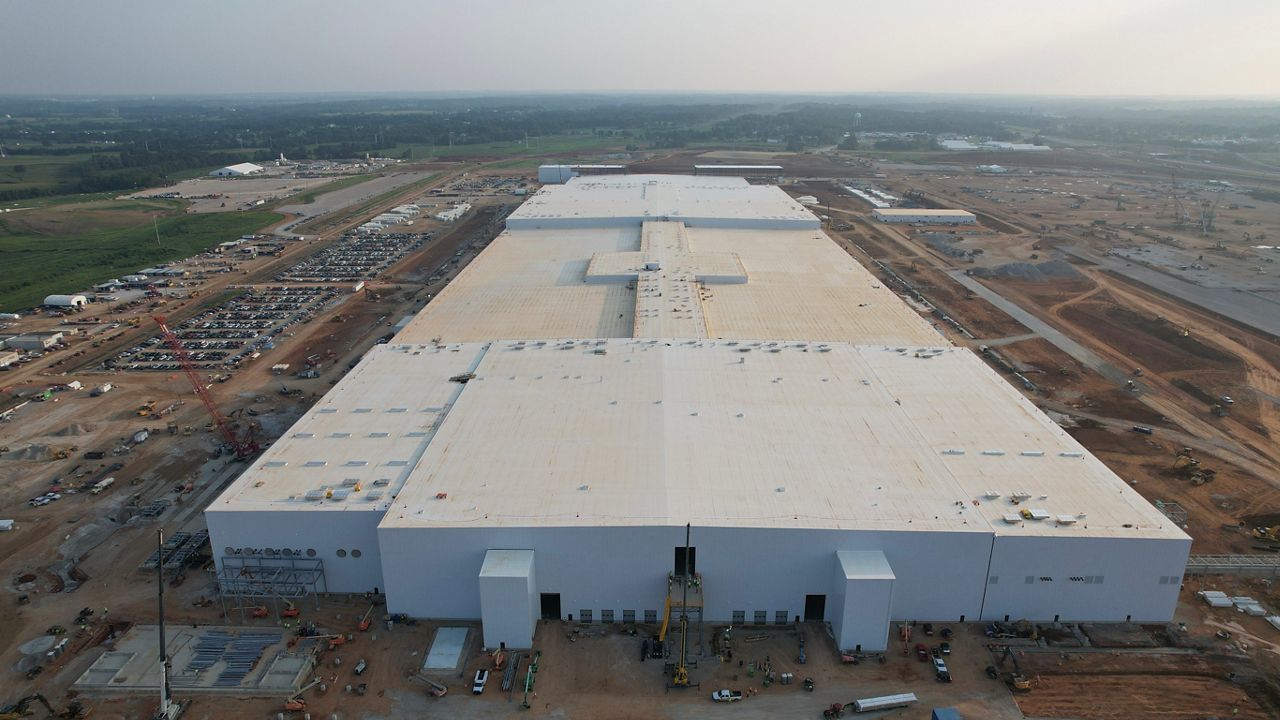GLENDALE, Ky. — Ford said plans to build one of two new joint-venture electric vehicle battery factories in Kentucky will be delayed, blaming a slowdown in electric vehicle sales and prices.
The automaker’s electric vehicle division was one of its weakest areas in its quarterly earnings report, where earnings before interest and taxes fell to a loss of $1.3 billion in the third quarter. The company blamed price competition in the sector, but Ford executives stressed they remain committed to electric vehicles.
That puts in limbo plans for one of two EV battery plants in Hardin County being built by Ford in partnership with SK Innovation. The joint venture, known as BlueOvalSK Battery Park, represents a $5.8 billion investment and 5,000 permanent jobs in Glendale.
Gov. Andy Beshear, D-Ky., announced on X, formerly known as Twitter, construction on the plants continues.
As recently as August, project leaders said plans for the battery plant were on schedule for the operation, with construction already underway. Crews had erected 44,000 tons of steel and completed approximately 80% of the exterior for the first building, with production slated to begin in 2025.
With a flattening growth curve for EVs, Chief Financial Officer John Lawler said, “We’re going to match demand and capital needed to meet that demand.” The company, he explained, may not move on EV plans if it doesn’t have to.
The company is also trimming the production of the Mustang Mach-e, its new electric compact SUV model, and delaying other spending on EVs totaling $12 billion.
Despite the slowdown for EVs, Ford posted a net income of $1.2 billion in the three-month period that ended Sept. 30.
The news comes just a day after the automobile giant reached a tentative contract agreement with the United Auto Workers union, who began striking on Sept. 15.
Ford announced plans to build BlueOvalSK Battery Park two years ago to supply Ford’s North American assembly plants with batteries to power new generations of Ford and Lincoln electric vehicles. According to Gov. Andy Beshear, D-Ky., the project represented the largest single economic development in the history of Kentucky.
The Associated Press contributed to this report.



